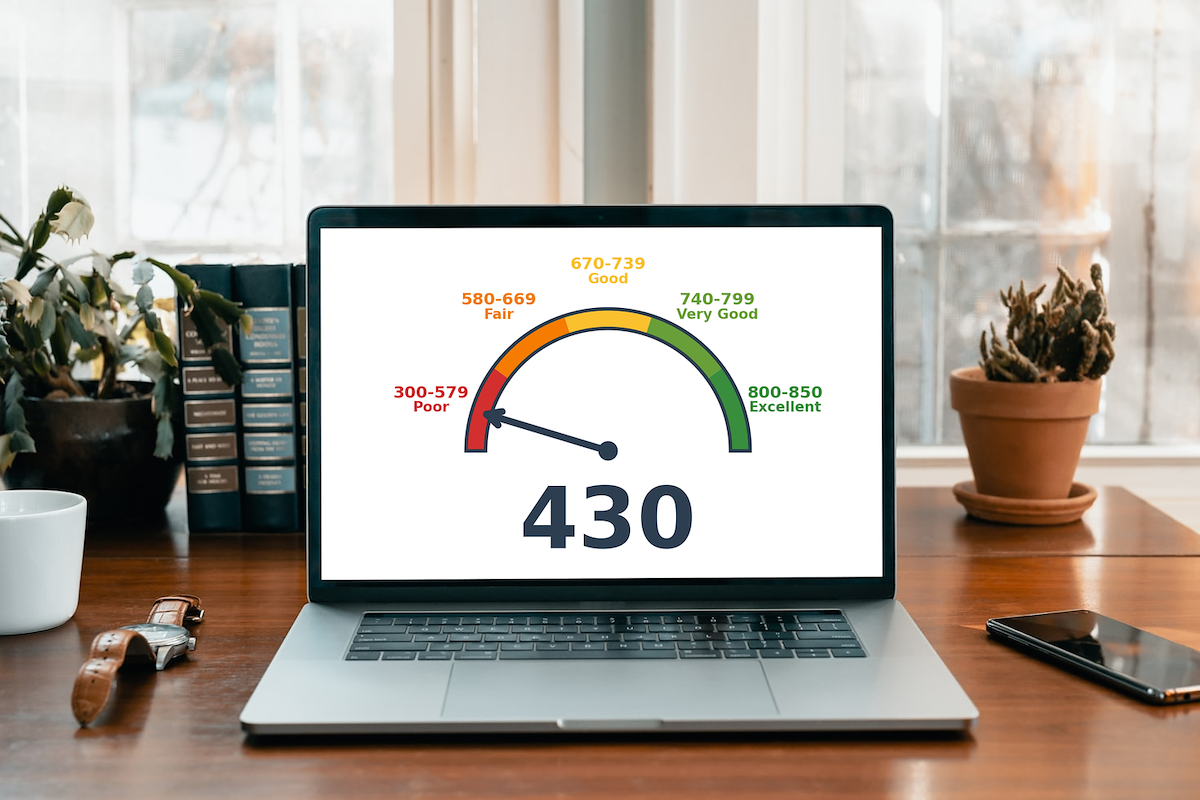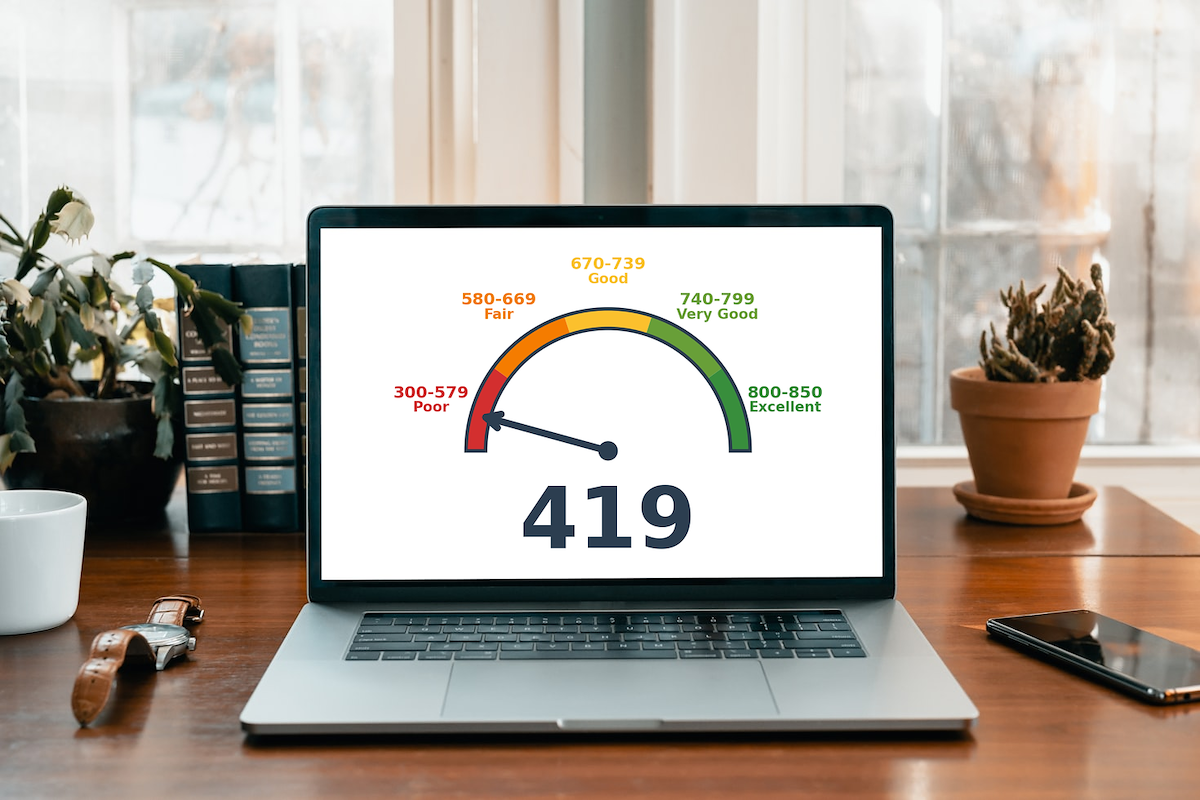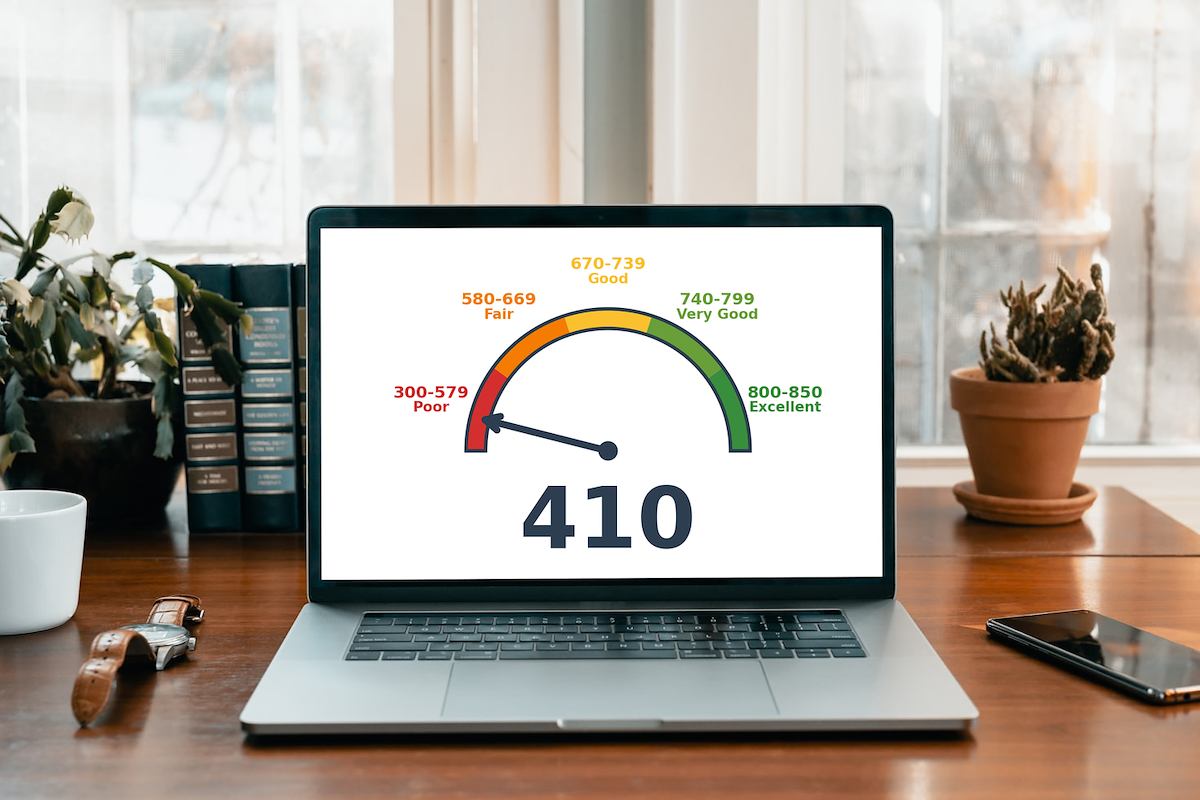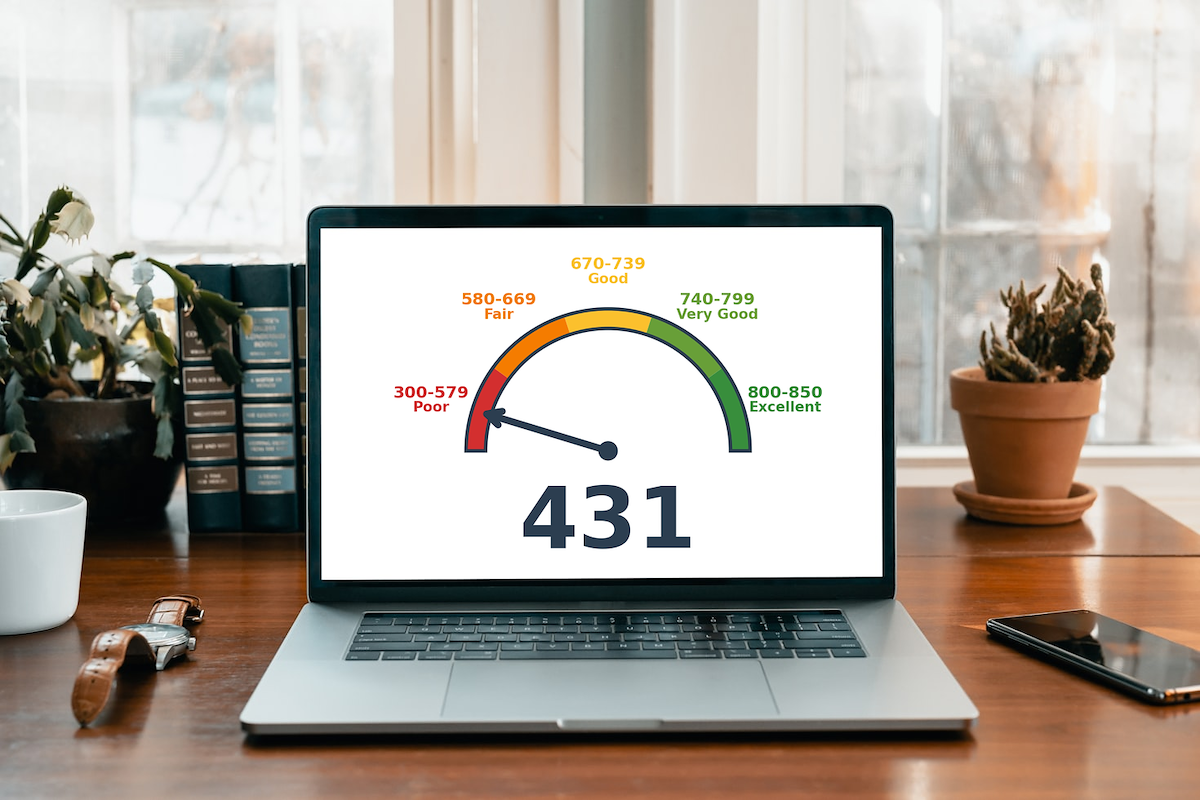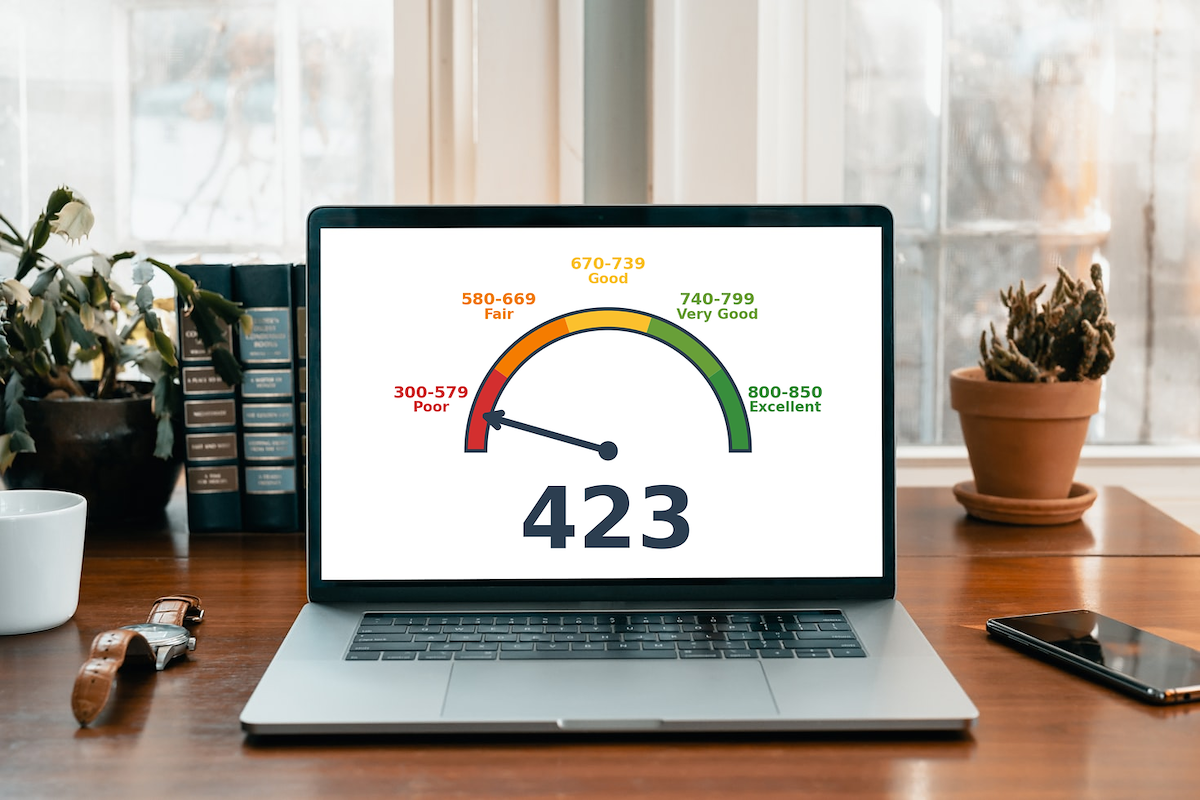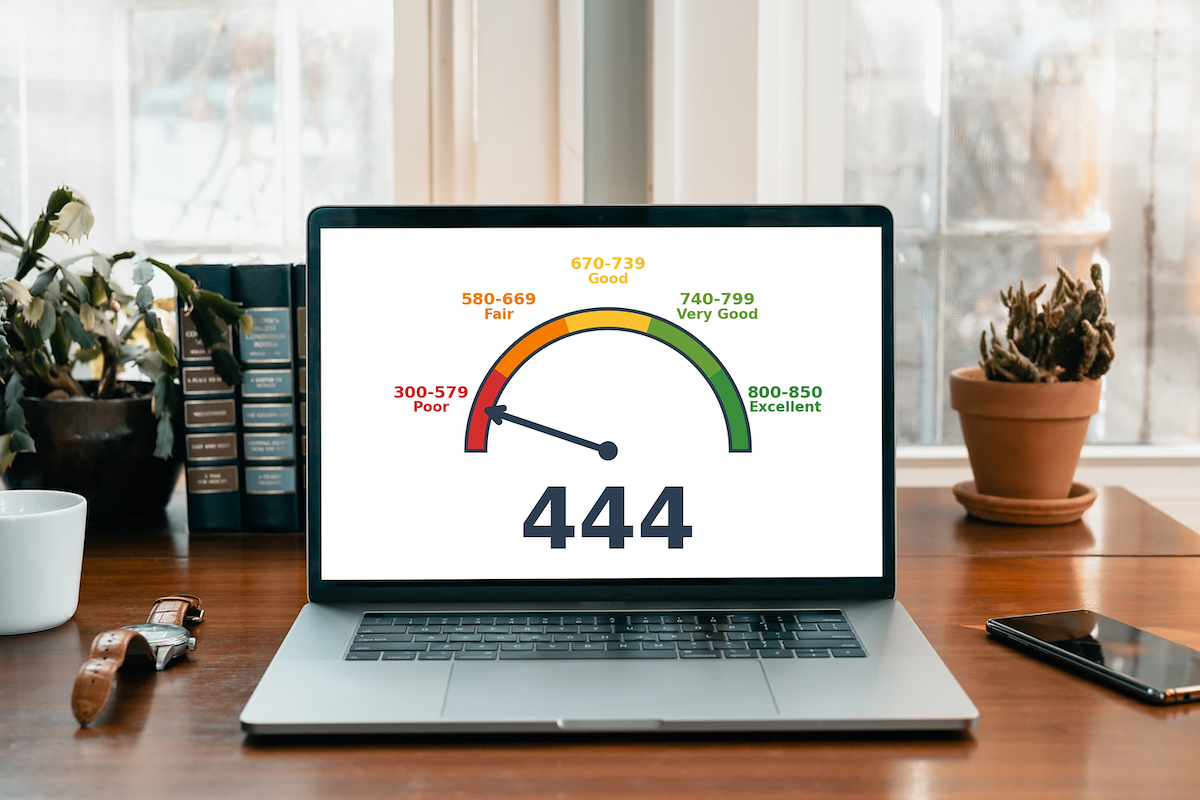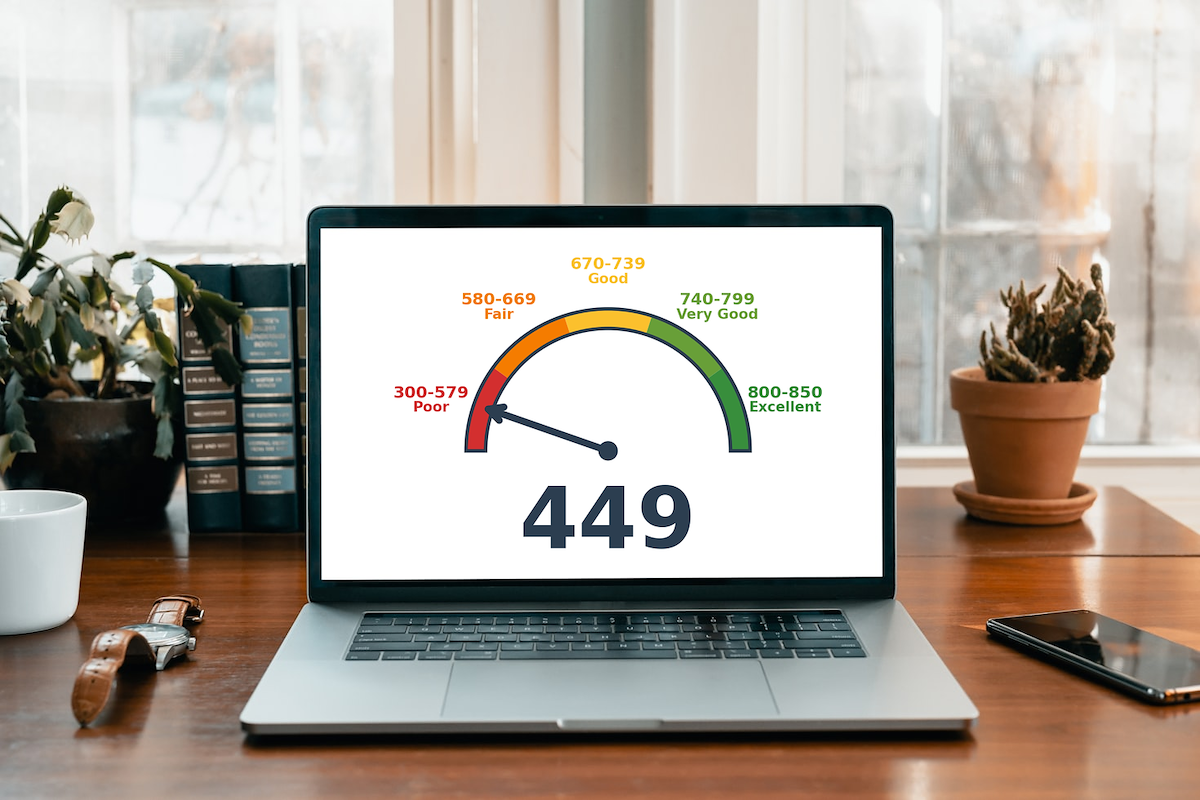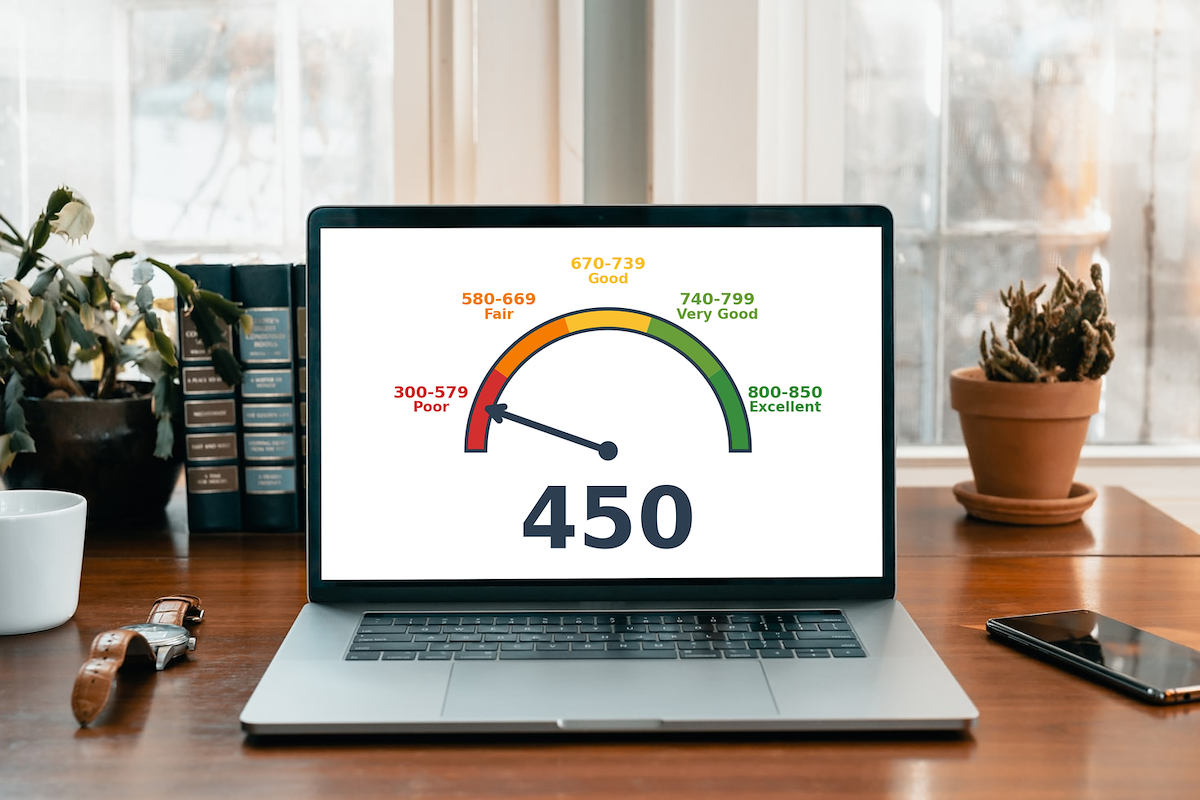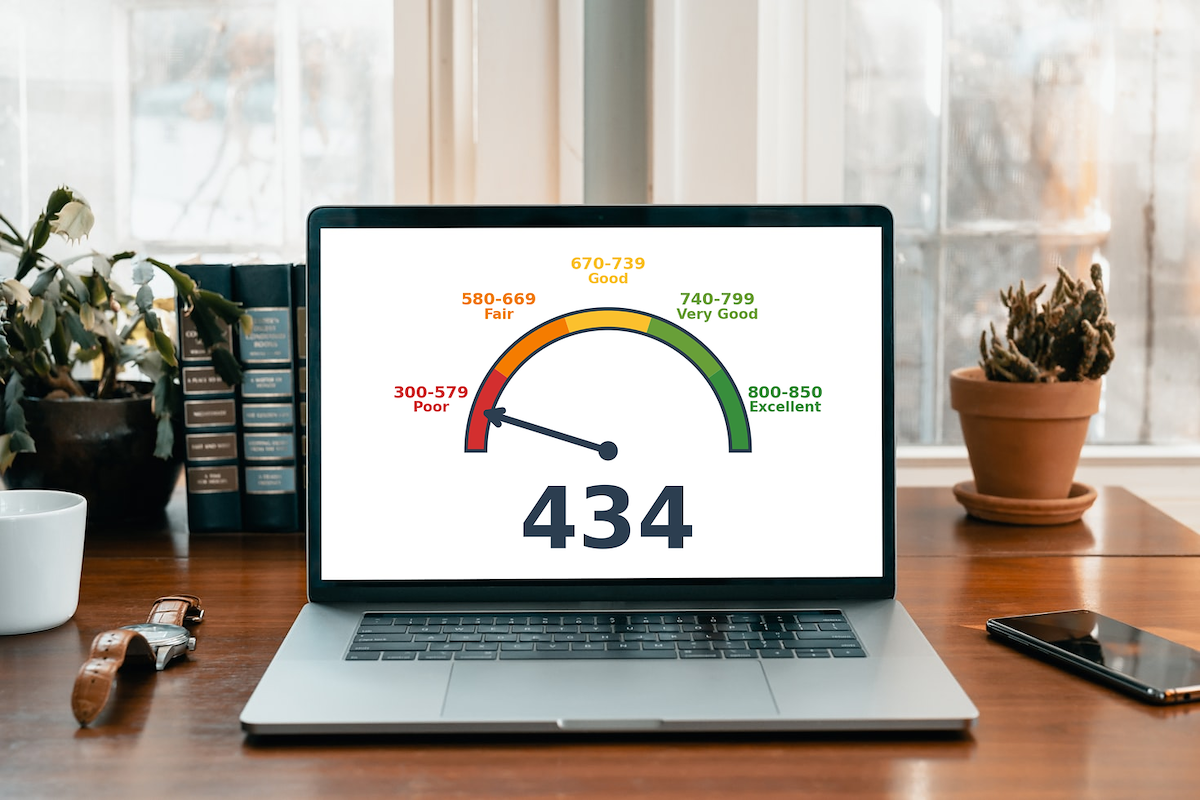
Kudos has partnered with CardRatings and Red Ventures for our coverage of credit card products. Kudos, CardRatings, and Red Ventures may receive a commission from card issuers. Kudos may receive commission from card issuers. Some of the card offers that appear on Kudos are from advertisers and may impact how and where card products appear on the site. Kudos tries to include as many card companies and offers as we are aware of, including offers from issuers that don't pay us, but we may not cover all card companies or all available card offers. You don't have to use our links, but we're grateful when you do!
424 Credit score: What You Need to Know in 2025
July 1, 2025

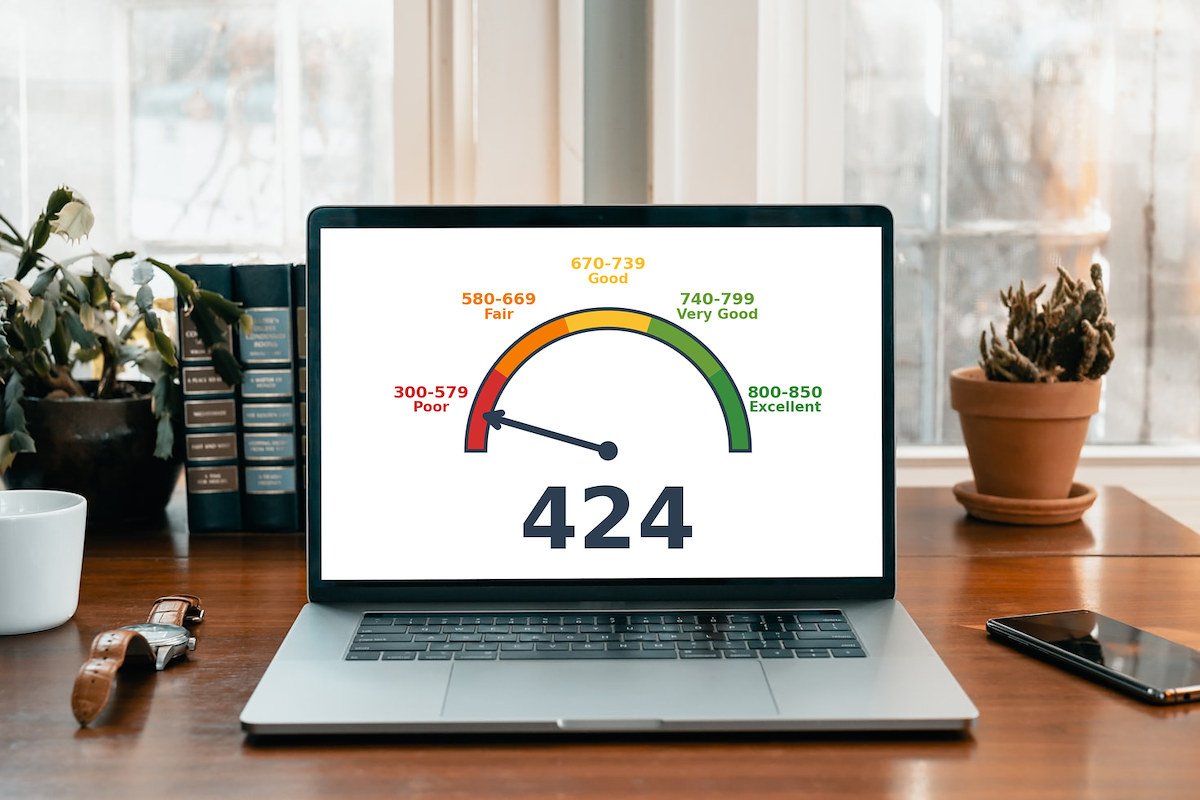
TL;DR
A 424 credit score is a starting point for building a stronger financial foundation, placing it squarely in the 'Poor' FICO score range. This provides a clear opportunity to focus on credit-building strategies and unlock better financial products in the future.
What Does a 424 Credit Score Mean?
A credit score of 424 falls into the "poor" range on the FICO model (300-850). Lenders view scores in this bracket as high-risk, indicating a history of financial difficulties. This can severely limit your options, often resulting in denials for new loans or credit cards. Any credit you are approved for will likely come with very high interest rates and unfavorable terms, making borrowing expensive.
While this score creates immediate challenges, it is not a permanent label. Consider it a baseline from which you can begin rebuilding your financial standing. Recognizing where you are is the essential first step toward a stronger credit profile. With consistent effort, improving your score is possible, paving the way for better financial opportunities in the future.
Who Has a 424 Credit Score?
While age itself is not a direct factor in calculating a credit score, there is a strong correlation between age and creditworthiness. As people get older, they generally have more time to build a positive credit history. According to 2023 data from Experian, here is the breakdown of average FICO scores by generation:
- Generation Z (ages 18-26): 680
- Millennials (ages 27-42): 690
- Generation X (ages 43-58): 709
- Baby Boomers (ages 59-77): 745
- The Silent Generation (ages 78+): 760
Credit Cards With a 424 Credit Score
A credit score of 424 can significantly hinder your ability to qualify for most traditional credit cards. Lenders view this score as an indicator of high risk, making them hesitant to extend a line of credit. Consequently, you may face outright rejections or only be eligible for secured cards that require a cash deposit and come with high fees and interest rates.
Kudos can help you navigate this challenging landscape with its AI-powered tools that personalize credit card recommendations based on your unique financial needs. By analyzing your preferences for features like low interest rates or providing insights into a card's potential credit score impact, Kudos helps you find suitable options from its database of nearly 3,000 cards.
Auto Loans and a 424 Credit Score
A 424 credit score places you in the deep subprime category, which is the lowest tier for lenders. Consequently, you will likely face the highest possible interest rates and may have significant difficulty getting approved for an auto loan.
According to a 2025 market analysis, average auto loan rates vary dramatically across the different credit score brackets:
- Super-prime (781-850): 5.25% for new cars, 7.13% for used cars
- Prime (661-780): 6.87% for new cars, 9.36% for used cars
- Non-prime (601-660): 9.83% for new cars, 13.92% for used cars
- Subprime (501-600): 13.18% for new cars, 18.86% for used cars
- Deep subprime (300-500): 15.77% for new cars, 21.55% for used cars
Mortgages at a 424 Credit Score
A 424 credit score is considered very low and falls well below the minimum for nearly all mortgage products. According to mortgage requirements, even the most lenient FHA loans require a score of 500 with a 10% down payment. With a 424 score, mainstream lenders will almost certainly deny an application. The only possibilities might be specialized subprime lenders or alternative financing, which come with significant risks and are not common.
If you could find a lender, the loan terms would be extremely unfavorable. You would face much higher interest rates, a large down payment requirement of at least 10%, and stricter underwriting processes. Lenders view scores this low as very high-risk, meaning any potential loan would come with the worst possible terms to offset that risk. Improving your credit score before applying is the most effective path forward.
What's in a Credit Score?
Figuring out what goes into your credit score can feel like trying to solve a complex puzzle, but it's primarily based on a handful of key financial habits. The most common factors include:
- Your payment history tracks whether you have paid past credit accounts on time.
- Credit utilization is the percentage of your available credit that you are currently using.
- The length of your credit history considers the age of your oldest account and the average age of all your accounts.
- Having a healthy mix of credit types, such as credit cards and installment loans, can positively impact your score.
- Recent credit inquiries and newly opened accounts can temporarily lower your score.
How to Improve Your 424 Credit Score
Having a 424 credit score can feel discouraging, but it is entirely possible to rebuild your financial standing. With consistent, positive habits, you can see meaningful improvements to your score in as little as three to six months by following a few proven methods.
- Monitor your credit reports regularly. Errors or fraudulent activity on your credit report could be unfairly dragging down your score, and disputing inaccuracies is one of the fastest ways to see a potential score increase.
- Establish automatic bill payments. Your payment history is the single most important factor in your credit score, so making on-time payments is non-negotiable for building a positive track record.
- Apply for a secured credit card. A secured card is an accessible tool for rebuilding credit, as your responsible payments are reported to the credit bureaus to help establish a positive history and raise your score over time.
- Reduce your credit utilization ratio. This ratio is a major component of your score, and keeping your balances low signals to lenders that you can manage debt responsibly.
Using a tool like Kudos can help you manage your cards and monitor your score all in one place.

Supercharge Your Credit Cards
Experience smarter spending with Kudos and unlock more from your credit cards. Earn $20.00 when you sign up for Kudos with "GET20" and make an eligible Kudos Boost purchase.
Editorial Disclosure: Opinions expressed here are those of Kudos alone, not those of any bank, credit card issuer, hotel, airline, or other entity. This content has not been reviewed, approved or otherwise endorsed by any of the entities included within the post.


















